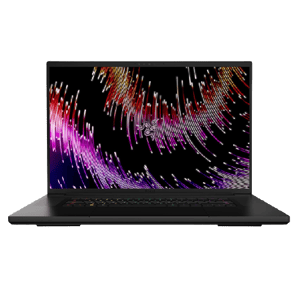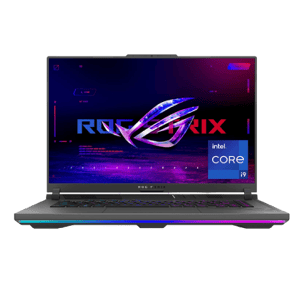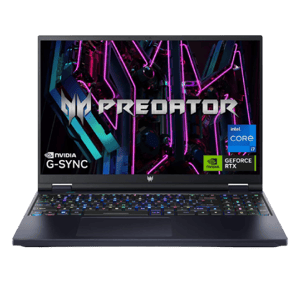One of the major downsides of being a competitive gamer is that you’re not very mobile. If you’re used to gaming at high refresh rates (and you should be if you’re competitive: the advantages can’t be denied) with a top of the line gaming monitor then you really can’t just play on any old office PC setup. Gamers who are very mobile might want to consider a gaming laptop.
Laptops are a great option for gamers who are often on the go and you no longer have to make compromises if you want to play on a laptop. Today’s gaming laptops are well and truly ready to meet the demands of competitive gamers: they come with top of the line Laptop GPUs and high refresh rate + high resolution panels.
We’ve listed three of the very best gaming laptops for competitive gaming at three different price points for you to consider.
Why use a laptop for gaming?
It’s really quite simple: if you are gaming in the same location for the majority of your playing time then we’d always recommend a desktop PC, but there are tons of people who are often on the go and don’t want to be dragging around a heavy PC (and a monitor and peripherals) every other day.
This isn’t just something that’s applicable to business professionals who are always traveling or what have you: think of students who alternate between their dorm room and home, think of children of divorced parents, think of people who spend a lot of time at their partner’s house, etc.
There are a ton of reasons why it could be better to go for a gaming laptop, and in today’s market, this does not mean that you have to make any major sacrifices as far as the performance of your system goes. High refresh rate + high resolution (1440p) panels ready for competitive gaming are here, and they’re here to stay, and there are laptops out there right now that can handle these resolutions and framerates with ease.
Speaking of performance: a gaming laptop naturally isn’t only good for gaming. These are high-powered machines that can handle any productivity task that you throw at them, so a gaming laptop can double as a working laptop, a school laptop, a media device, and so much more.
In short: using a laptop for competitive gaming quite simply makes you a lot more mobile, both literally and figuratively.
The Guide
As we mentioned earlier, we’ll list three laptops at three different price tiers in our guide. Do note that this needs to be seen in context: for competitive gaming, there are certain standards, so the budget laptop won’t be a piece of equipment with a 60Hz screen that has trouble running competitive games at higher framerates. All of the laptops in this guide perform great for competitive gaming, and deciding which one is the best for you will come down to a number of things such as your game of choice (some games require more processing power to run, meaning that you need a heavier system to match), your budget, and your own wants and needs.
It is possible to spend less on a gaming laptop if you’re happy to game at 60 FPS but you’ll be at such a disadvantage competitively speaking that we don’t consider that to be an option for serious competitive players. If you’re someone who likes to take a break from the multiplayer action to indulge in some single player worlds, you’ll be happy to know that each of the laptops in this article come with the latest GeForce RTX 40 Series Laptop GPUs. These support cutting edge features such as DLSS 3 which makes your games run faster thanks to AI.
Razer Blade 18
The Razer Blade line of competitive gaming laptops has long been considered to be playing in the very top tiers and the newest edition doesn’t give anyone any reason to doubt that reputation.
The Blade 18 can be bought in many configurations, but we recommend a one with an RTX 4090 Laptop GPU, a 13950 CPU and 32 gigabytes of RAM as our top tier configuration, which makes this an absolute beast for gaming. It will run many competitive games at well over the 360 FPS mark, and it will obviously also have no issues at all with plenty of single player games being maxed out, even on its higher resolution screen.
Speaking of resolutions: the Blade has a 1600P display with a 240Hz refresh rate, ensuring that all of the onscreen action will be as easy to follow as it is on a desktop setup. The higher resolution not only increases the overall visual fidelity, but it can also give you some benefits in game.
The Blade 18 is not the most portable laptop in the business and the battery life won’t allow you to game your way through long flights or anything like that, but that’s okay because we don’t see this laptop as a ‘commuter laptop’: this is the one to get if you’re someone who is changing base every couple of days and you want to experience desktop-level performance without the hassle of dragging around a desktop PC, monitor, and what have you.
It comes with a large port selection and a built in 5MP webcam along with an array of microphones, so it can also serve as a top tier productivity laptop for that ultimate ‘desktop on the go’ feeling.
Razer Blade 18
The Razer Blade 18 is one of Razer’s flagship laptops and can be bought in a variety of configurations.
Pros
- 240Hz display
- Great build quality
- Larger screen is great for esports
- Fantastic gaming performance
- Houses top components
Cons
- Heavy and bulky
- Battery life isn’t the greatest
- Expensive
ASUS Strix G16
Having a slightly more limited budget doesn’t mean that you have to make critical compromises when it comes to the overall competitive gaming performance of your laptop, and the ASUS Strix G16 is a perfect example of that.
The model that we recommend comes with an RTX 4070 Laptop GPU (which, as you might know, is also the tier of one of our favorite desktop GPUs right now) and an i9-13980HX processor. Combine that with 32 gigabytes of DDR5 RAM and you’ve got a machine that can handle competitive games at all framerate steps, even if it houses a 240Hz 1600P screen like this one.
Despite the fact that the ASUS ROG Strix G16 is a bit less powerful than our top recommendation, it is a great laptop if you’re primarily concerned about getting a great price/performance laptop. With its powerful GPU and CPU, you will also be able to max out most modern single player games without any issues at all, giving you the opportunity to sit back and relax if you’re on the go and you don’t want to get into a sweaty competitive match.
Of course, this is also a great product to use for productivity purposes, such as school or work. With its powerful graphics card, processor, and 32GB of RAM, it’ll absolutely deliver reliable performances in all but the most graphically intense work applications.
ASUS ROG Strix G16
The ASUS ROG Strix G16 is a mid tier gaming laptop that comes in a number of configurations.
Pros
- Good battery life for a gaming laptop
- Excellent gaming performances
- Nice build quality
- Pleasant keyboard
- Good amount of ports
Cons
- A bit thick and unwieldy
- Can get loud and fans are placed in an odd manner
Acer Predator Helios
Thanks to the always rising performance of Laptop GPUs, CPUs, and components in general, it’s perfectly possible to be competitive on a budget gaming laptop nowadays. The Acer Predator Helios is living proof of that. It even comes with a 1600P screen so that you’re completely up to date with the whole higher resolution revolution.
Of course, a budget laptop needs to make compromises here and there. The refresh rate of the Helios is ‘just’ 165Hz, but given the fact that we consider 144Hz to be the minimum refresh rate for competitive gamers (higher = better, but there are diminishing returns with framerates) this laptop clears that hurdle with ease.
The model that we recommend further houses an RTX 4060 Laptop GPU, an i7-13700HX CPU, and 16GB of DDR5 RAM. These specs aren’t quite enough to demolish all games at max settings and insane framerates, but they are more than sufficient to run competitive games at framerates that satisfy the needs of competitive gamers. It’ll also handle most work and productivity applications without any hassle, so unless you’re doing work that requires a ton of (graphical) processing power this laptop will also serve you well as a productivity device.
Being a budget-oriented machine, the Helios doesn’t have that premium look and feel that some of the more expensive laptops have, but that of course doesn’t have to be a problem.
The Helios is an excellent budget option if you’re asking us.
Acer Predator Helios
The Acer Predator Helios is a competitive gaming laptop that can be bought in multiple configurations.
Pros
- Good gaming performances on a budget
- Good screen
- Lots of ports
Cons
- Can get loud
- Doesn’t look/feel as premium
- Keyboard isn’t the best
Conclusion
Gaming on the go does not mean that you’re gaming with compromises. The only factor you have to really consider when deciding on a gaming laptop is the fact that a gaming laptop is almost always going to be more expensive than a desktop, definitely if you’ve assembled said desktop yourself, so you might want to allocate a little more money to your budget if mobility is the name of your game.
With that said: even at the lower ends of the budget spectrum you can find some fantastic options that come with 1600P screens with refresh rates higher than 144Hz that will deliver consistent and satisfying gaming performances, so the days where you had to spend thousands on a gaming laptop in order to even come close to what a desktop can do are well and truly behind us. The three laptops in this article represent three different price points, and they are all great options for competitive gamers.
When looking at this list, it’s also important to consider the requirements for competitive gaming. A refresh rate of at least 144Hz is the absolute minimum in this day and age, for example, so while it’s of course possible to buy cheaper laptops with a 60Hz screen, it’s not something that we would recommend if you want to keep up with the competition when gaming.
Hopefully this article will help you in your search for your next gaming laptop, but if you have any questions or remarks then please feel free to reach out!







